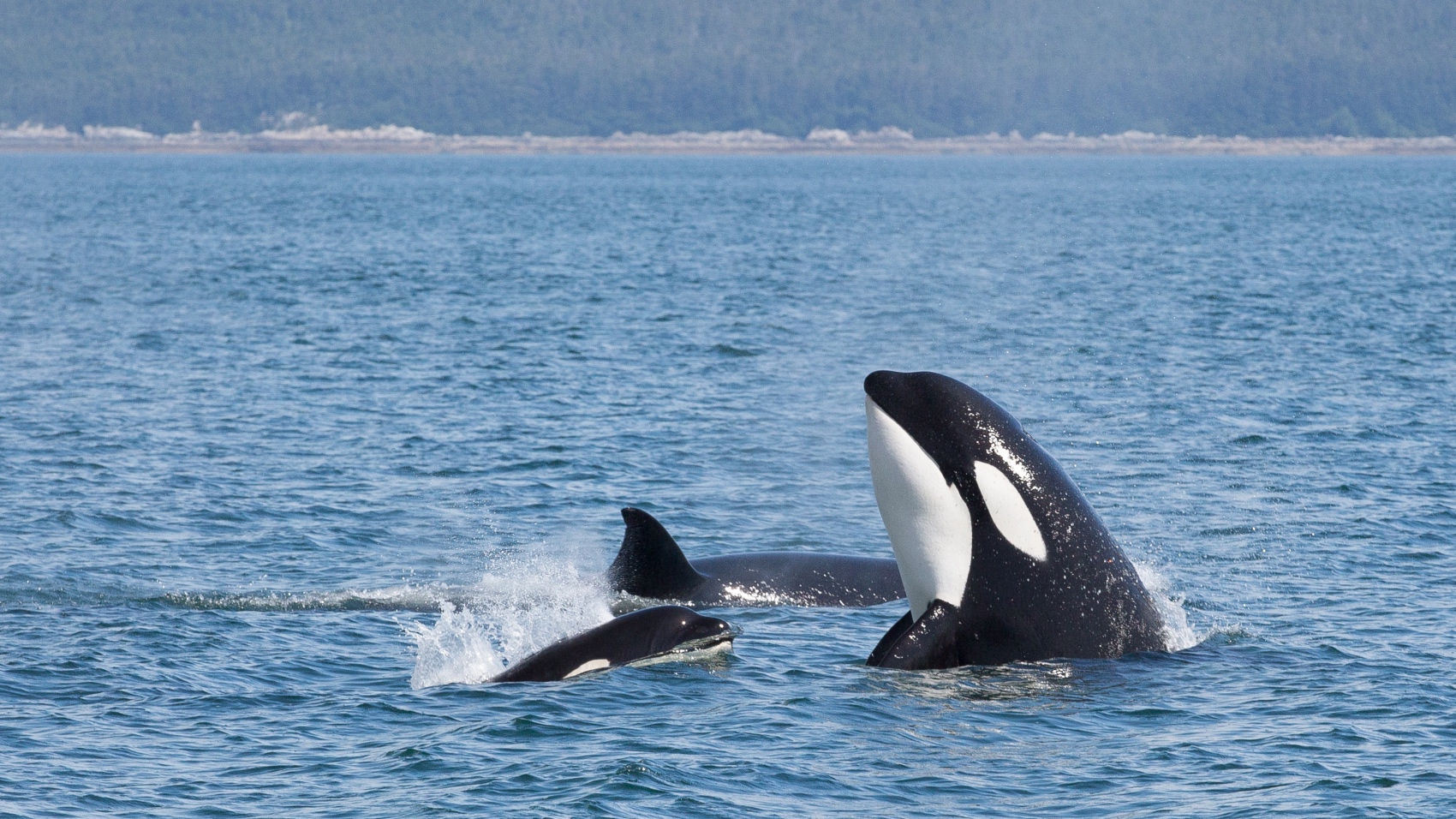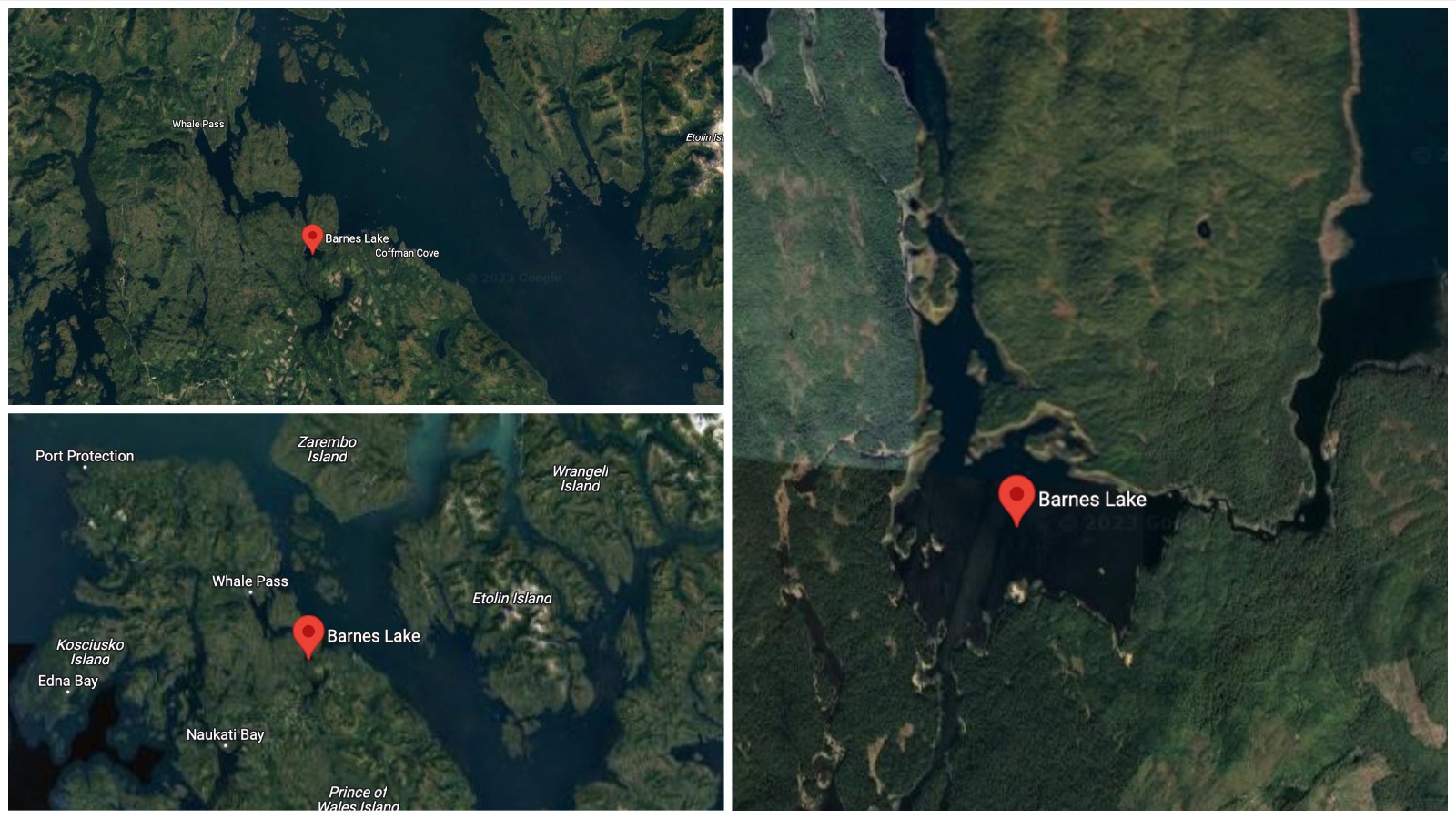
iStockphoto / shleiken
An absolutely incredible story has emerged out of Southeast Alaska as locals worked together to free orcas that were trapped in a remote lack for six long weeks. There’s a video below of the whales being rescued but first, let’s discuss how it all went down.
The two orcas, identified as 16-year-old T049A2 and 42-year-old T051, both males. A report from NOAA claims that prior to being spotted in the remote Barnes Lake on Coffman Cove in Prince Wales Island, the two orcas has been spotted off Vancouver Island in early July.
According to the NOAA report, this is the second time a group of orcas became trapped in the remote Barnes Lake. It previously happened almost 30 years ago when a group of offshore killer whales were trapped in the lake. Most of that pod was successfully herded back to the ocean after human intervention so there was a vague blueprint for this mission. And one person, David Bain of the Orca Conservancy, participated in this recent intervention.
Mission To Free Orcas From Barnes Lake In Alaska
First off, this lake is only accessible when the tides are perfect. So the timing of the mission to free the two orcas had to be perfect. Secondly, these are unpredictable wild animals who aren’t accustomed to following the orders of humans.
Alas, extensive planning led to a successful mission and the 16yr old and 42yr old orcas were recently freed. Using acoustic tools, the community from Coffman Cove were able to corral the orcas out of the lake when the tide was perfect.
The three acoustic tools used to get them out, according to NOAA, were:
— Playbacks, or acoustic recordings, of whales known to travel with the Barnes Lake whales
— Hukilau, an ancient Hawaiian fishing method using lines and floats
— Oikomi pipes
NOAA’s Alaska Regional Stranding Coordinator Mandy Keogh said “Barnes Lake was a really challenging area to mount a response. The tides dictated which day and how long we could work to encourage the whales out of the lake. Human safety is always the top priority in any stranding response and the local knowledge, boating skills, and dedication of the Coffman Cove community is what made this response possible.”
A Successful Mission To Get The Killer Whales Out
A TikToker who goes by the name ‘TheOrcaMan’ published this video detailing how the orcas were freed. He was able to splice together footage of the whales getting how. However, like me when I first searched ‘Barnes Lake’, he has looked up the wrong Barnes Lake. The one the orcas were freed from is adjacent to Coffman Cove and not way up the Stikine River like he shows in this video. He later issued a correction about this.
@theorcaman The two whales are T049A2 (16 year old) and his friend T051. Video credit goes to Jared Towers of Bay Cetology, who helped immensely in this effort alongside NOAA, the DFO, @Orca Conservancy, and more than half the population of Coffman Cove. Well done to everyone involved, thank you for your work with the whales and sharing these stories with us. #orca #killerwhale #orcawhale #orcas #killerwhales #orcatok #alaska #greenscreenvideo
This is the location of the Barnes Lake where the two orcas were trapped for six weeks and later freed from:

Google Maps
A team with 14 boats got on Barnes Lake on September 28th with 30 Coffman Cove community members. They planned to employ all three acoustic tactics to corral the orcas out. Unfortunately, kelp growth had blocked the north end channel of the lake and the orcas were unable to exit the way they entered the lake and conditions were rough that day and the mission had to be abandoned.
Meeting again the next day, on September 29th, the team of 30 employed two parallel approaches with one team removing kelp from the lake’s channel and another team working to corral the orcas through that kelp-free channel.
David Bain of Orca Conservancy told NOAA “We started from the approach that worked in 1994, and adapted it to succeed with these two whales. Barnes Lake is difficult to get in and out of, as the exits are narrow and shallow, whitewater forms when the current is strong, and much of both channels dry out and waterfalls form at low tide. Driving through the north channel as we did in 1994 didn’t work this year, perhaps because the kelp was thicker and stronger, the tide wasn’t quite as high, and the whales were larger. So, we decided to try to take advantage of these whales’ greater willingness to move through shallow water and narrow passages and try the south channel.”
This time, using the three acoustic tools, everything worked. They employed whale sounds to draw the orcas into the channel and once there they didn’t hesitate and swam through the kelp-free channel. And at peak high tide they were finally, after six long weeks, able to exit Barnes Lake and get back into the Pacific ahead of the changing Fall and Winter seasons.
Jared Towers from Fisheries and Oceans Canada told NOAA “Using a series of brief recordings of females these two whales are known to enjoy traveling with, we managed to coax them into and through the exit channel. It sounds simple but in fact required a huge effort from dozens of people to successfully pull it off. It’s good to know that after more than 6 weeks in a small lake that they have their freedom back.”
Residents of Coffman Cove were elated that everything came together perfectly to free the two trapped orcas. Now, us geriatric millennials can only hope this story revives the Free Willy franchise and we get a film about this.